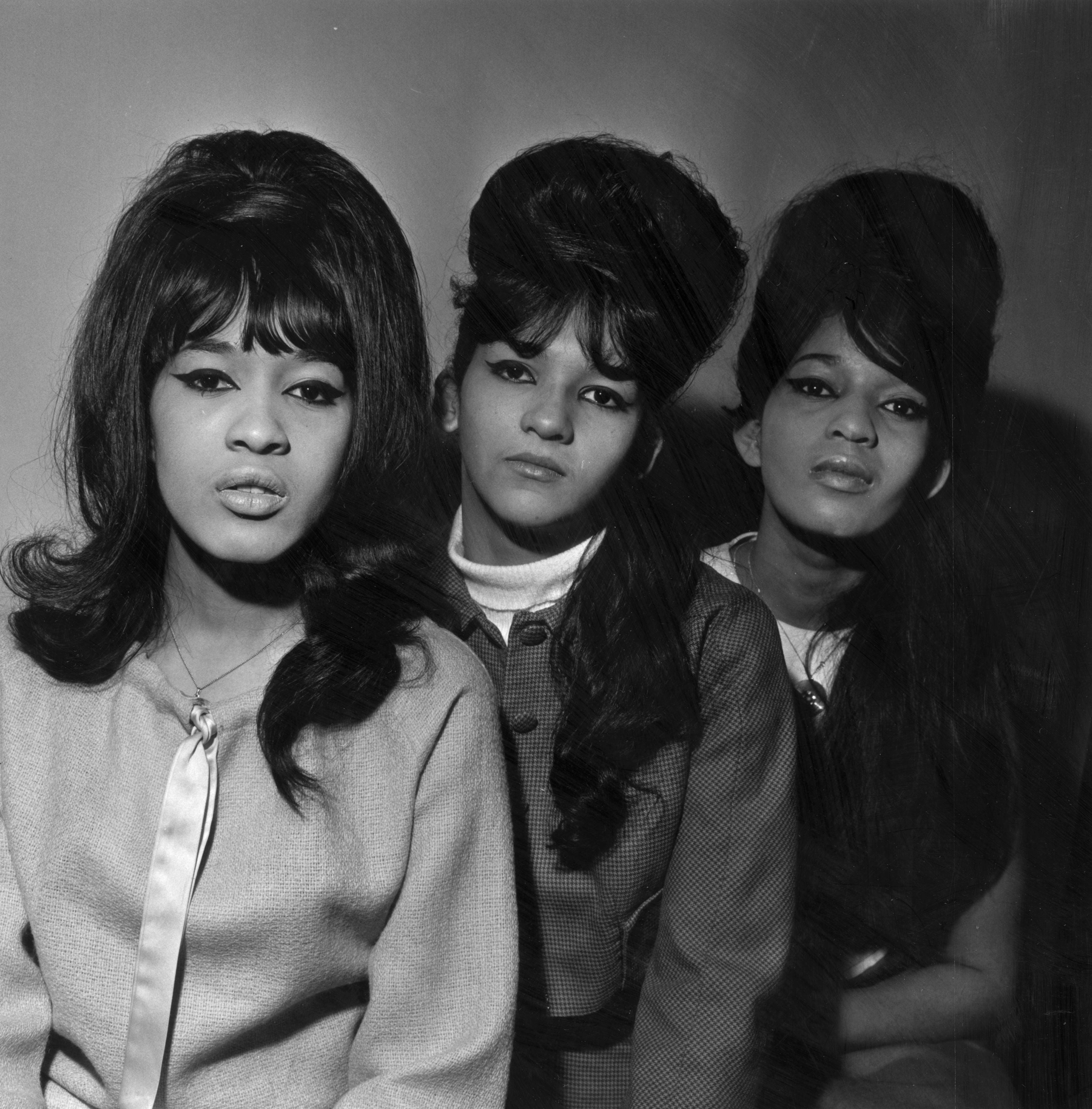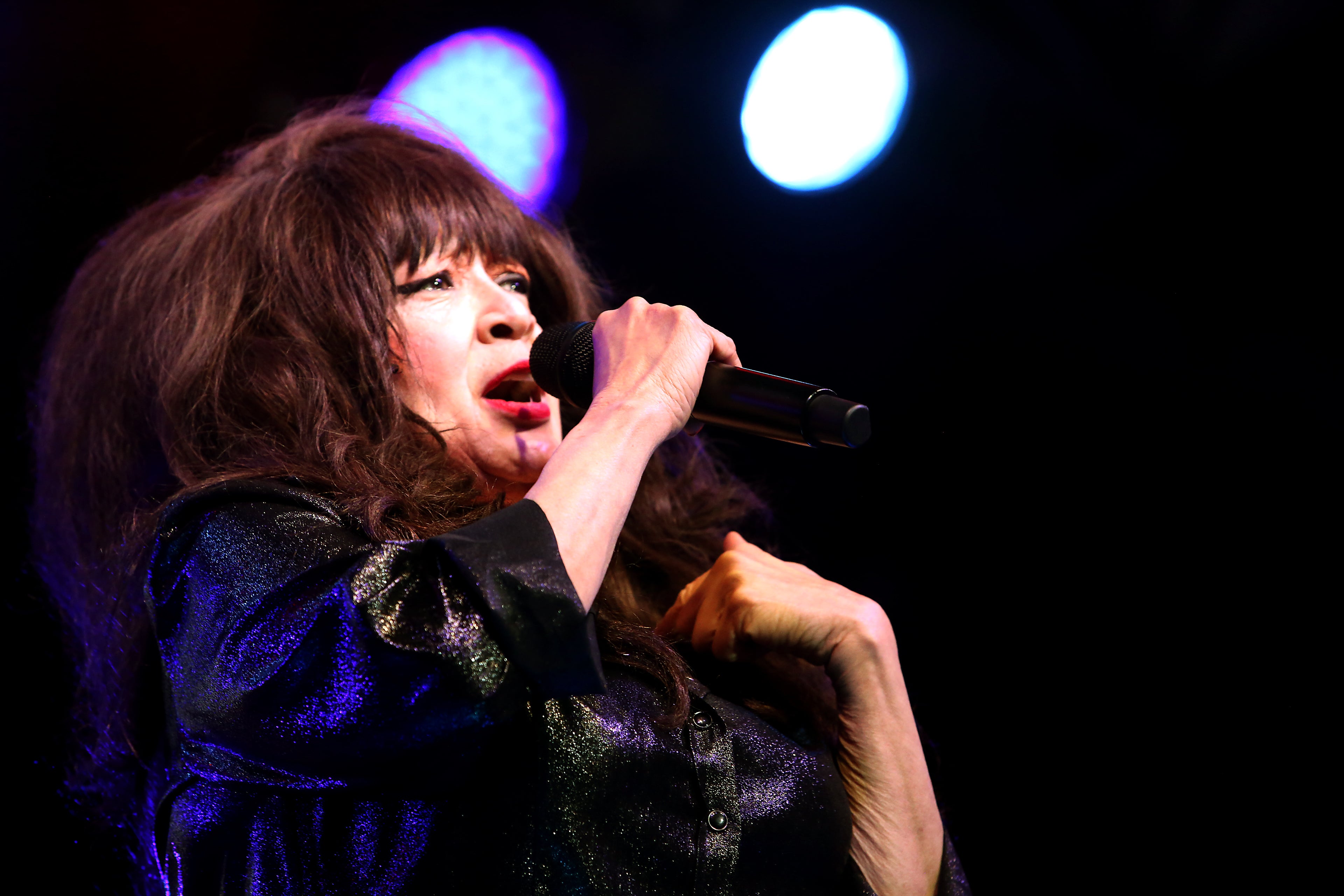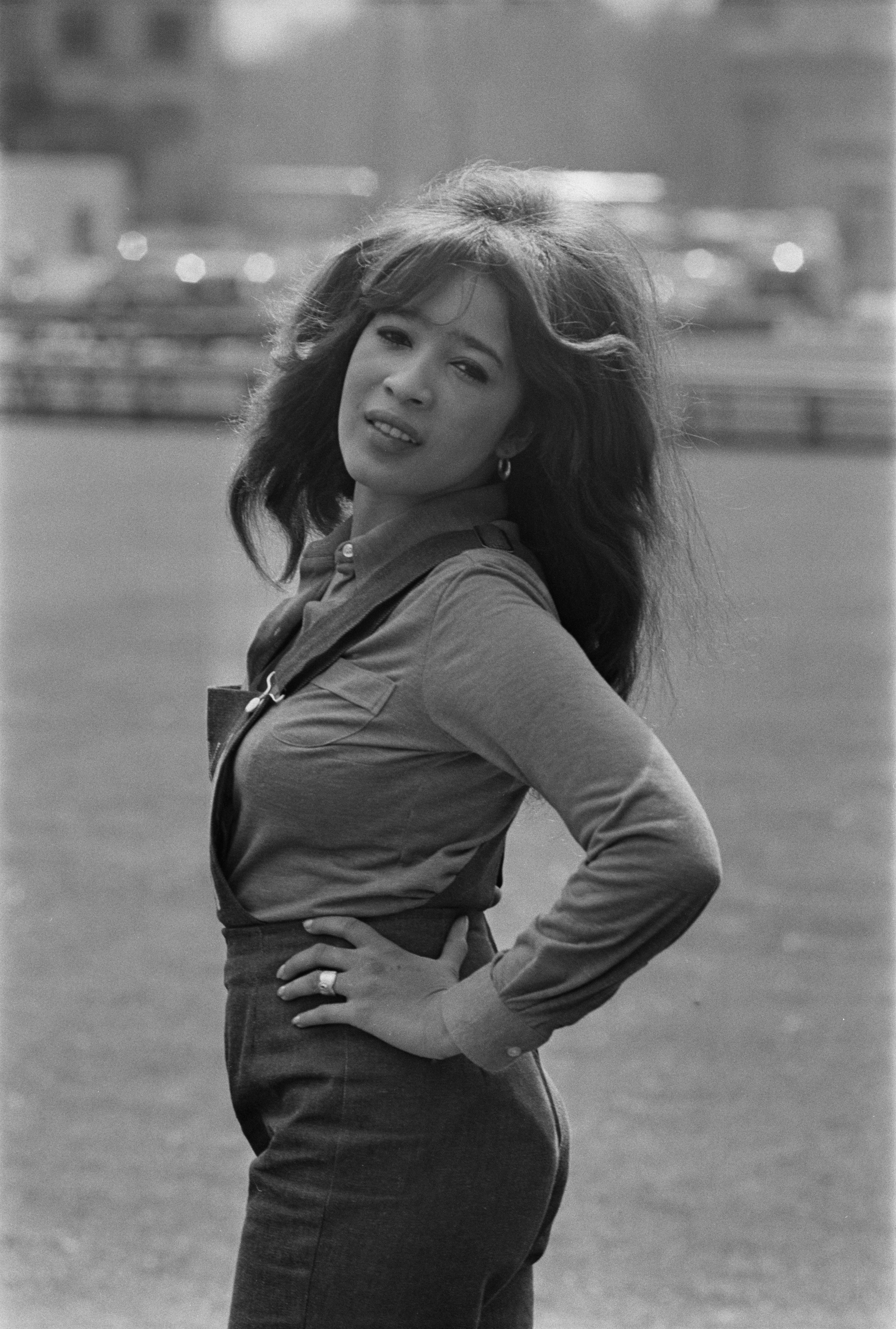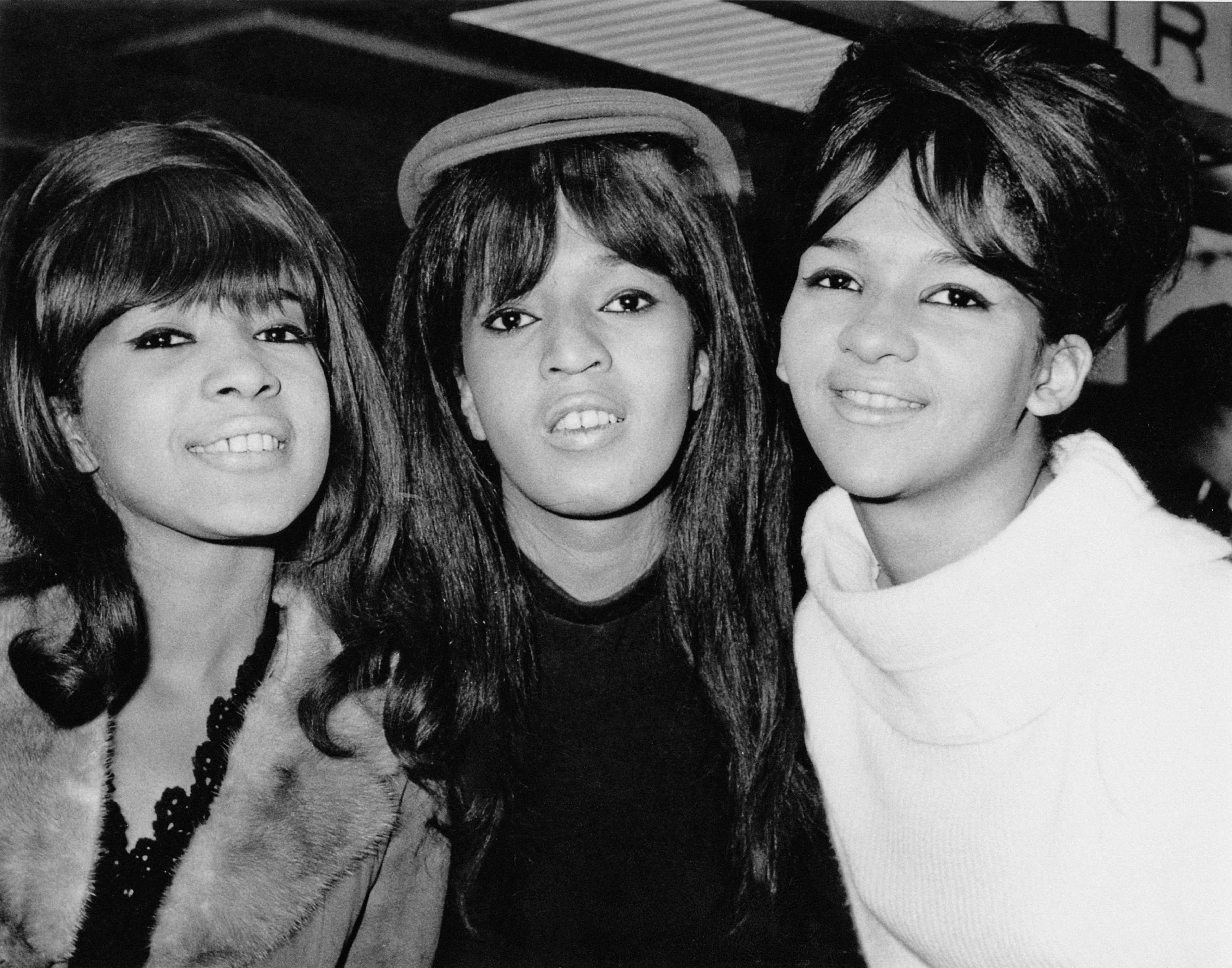Ronnie Spector: Lead singer of The Ronettes who took charts by storm
Ronnie Spector was the lead singer on ‘Be My Baby’, a 1963 track which sold more than a million copies

Your support helps us to tell the story
From reproductive rights to climate change to Big Tech, The Independent is on the ground when the story is developing. Whether it's investigating the financials of Elon Musk's pro-Trump PAC or producing our latest documentary, 'The A Word', which shines a light on the American women fighting for reproductive rights, we know how important it is to parse out the facts from the messaging.
At such a critical moment in US history, we need reporters on the ground. Your donation allows us to keep sending journalists to speak to both sides of the story.
The Independent is trusted by Americans across the entire political spectrum. And unlike many other quality news outlets, we choose not to lock Americans out of our reporting and analysis with paywalls. We believe quality journalism should be available to everyone, paid for by those who can afford it.
Your support makes all the difference.Ronnie Spector, who has died of cancer aged 78, was the lead singer of The Ronettes, a female American trio whose vocal talents combined with the “Wall of Sound” created by pioneering producer Phil Spector – whom she married – to take the charts by storm with the single “Be My Baby” in 1963.
The strains of “Be my, be my baby/Be my little baby, my one and only baby/Say you’ll be my darlin’, be my, be my baby/Be my baby now, my one and only baby/Wha-oh-oh-oh’” hit No 2 in the US and No 4 in the UK, selling more than a million copies.
Brian Wilson, of the Beach Boys, was blown away by the sound and credited Phil Spector with being “the biggest inspiration in my world” after hearing “Be My Baby”.
Ronnie – when she was still Veronica Bennett – had started singing with her older sister Estelle and cousin Nedra Talley, billed as the Dolly Sisters, while in high school.
After Chubby Checker scored a No 1 with Hank Ballard’s song “The Twist” in 1960, the trio performed it as resident dancers and vocalists at the Peppermint Lounge clubs in New York and Miami, which started the Twist dance craze that spread across the US. They also appeared on DJ Clay Cole’s Twist Package tour.
Then, in 1963, Spector – dubbed the “Tycoon of Teen” for grooming female vocal groups such as The Crystals to appeal to the teenage market at a time when rock’n’roll was king – saw The Ronettes at the Brooklyn Fox Theatre.
Particularly impressed by the voice and extrovert character of Ronnie, he signed the trio to his own Philles label and took them into the recording studio to make “Be My Baby” and their next single, “Baby, I Love You” (1964), showcasing his overblown arrangements and use of multiple instruments to its best effect so far.
But that follow-up and the next two releases, “(The Best Part of) Breakin’ Up” and “Do I Love You?” (both 1964), never came close to matching the first one.

Nevertheless, Ronnie later recalled: "For three years, 1963 to 1966, we had the best times getting ready to go on stage, our dresses slit up the side, our beehives sprayed with Aquanet… the excitement from the crowd when we would walk out on stage.”
The group – paid homage to years later by Amy Winehouse with her beehive hairdos and winglets painted at the corners of her eyes – finally disbanded in 1966.
Two years later, Ronnie married Phil, but the relationship became abusive because of the producer’s extreme jealousy.
In her 1990 autobiography, Be My Baby: I Survived Mascara, Miniskirts and Madness, she revealed that he banned her from performing, locked her in their Beverly Hills mansion – which he made a fortress, surrounded by barbed wire and guard dogs – and kept a gold coffin in the basement, threatening to kill her if she tried to leave him.
He also adopted a pair of twins, Gary and Louis, as a 1971 Christmas present without asking her. (They had already adopted a son, Donte, in 1969.)
With the help of her mother, who fought him off, she finally escaped in 1972. Divorce followed two years later and she revived her career as a solo artist while the producer’s descent eventually led him to be convicted of murder after shooting dead Lana Clarkson, an actor, in 2003.

Veronica Yvette Bennett was born in Washington Heights, in New York’s Upper Manhattan district, to Beatrice (née Mobley), an African-American Cherokee, and Lewis Bennett, an Irish American who worked on the subway.
She and Estelle were bullied at George Washington High School because of their mixed race, but they found an outlet in singing, forming their first group with Nedra and three other cousins when they were 14, and making their debut at the Apollo Theatre.
When her male cousin Ira froze at the microphone, Ronnie stood in. “The audience went crazy,” she said. The act slimmed down to a trio and adopted the name the Darling Sisters.
After taking singing lessons, they were signed by Colpix Records, which in 1961 and 1962 released four unsuccessful singles, starting as Ronnie and the Relatives with “I Want a Boy” before changing their name to The Ronettes.
Following a tip from Ronnie’s mother to stuff tissue paper down their bras, they were hired to perform at the Peppermint Lounge in 1962. When DJ Murray Kaufman spotted the group there, they became dancers in his rock’n’roll revues at the Brooklyn Fox Theatre.
Ronnie said her sister then phoned Phil Spector – although Nedra disputed that story – but, whatever the reality, he was looking for talent and signed them on the spot.

Alongside their early singles, The Ronettes performed “Frosty the Snowman”, “Sleigh Ride” and “I Saw Mommy Kissing Santa Claus” on Phil Spector’s 1963 various-artists compilation album A Christmas Gift for You. They began the following year on a tour of Britain, with the Rolling Stones as support, when Ronnie dated John Lennon.
After four singles with the producer, and tours of the US and Europe in 1963 and 1964, the group’s popularity quickly waned.
The dramatic ballad “Walking in the Rain” (1964) reached only No 23 in the US and failed to chart in the UK, where it was retitled “In the Rain” for copyright reasons.
For a 1965 US tour supporting The Beatles, Ronnie was replaced by her cousin Elaine after leaving the group to be with her producer boyfriend.
She was back for The Ronettes’ final single, “I Can Hear Music” (1966), before they went their separate ways.
During her marriage to Phil Spector, Ronnie recorded a few tracks at Abbey Road Studios, London, with him and former Beatle George Harrison producing. The only single, Harrison’s song “Try Some, Buy Some” (1971), failed to make any impression.
Ronnie revived the Ronettes with Denise Edwards and Chip Fields, releasing singles in 1973 and 1974 that similarly had no impact on the charts, before starting a solo career in 1975 that was hampered by being barred as part of her divorce settlement from performing Ronettes songs.

Her own alcoholism meant that Phil was given custody of the couple’s adopted children.
She returned to the US charts to reach No 4 in 1986 alongside Eddie Money on his single “Take Me Home Tonight”, singing parts of the “Be My Baby” chorus in counterpoint, uncredited.
Two years later, The Ronettes began a lawsuit against Phil Spector for cancelling their five-year recording contract and to recover money earned from the sale of their master recordings and unpaid royalties.
During the long legal battle, a judge dismissed his assertion that Ronnie signed away her rights to royalties in their divorce settlement.
In 2000, the three original group members were awarded a total of $2.6m – after they claimed to have received only $15,000 in royalties – but that was overturned two years later on appeal and they ended up with an undisclosed lower sum.
Ronnie told the story of her marriage when she starred in Beyond the Beehive, a musical that successfully toured the US in 2012 and the UK two years later.
Her final album, English Heart (2016), was a Top 10 hit in the US, although her voice was a shadow of its former self.
In 1982, Ronnie married Jonathan Greenfield, who worked in theatre production and then became her manager. He and their two sons, Jason and Austin, survive her. Estelle died in 2009.
Ronnie Spector, singer, born 10 August 1943, died 12 January 2022.

